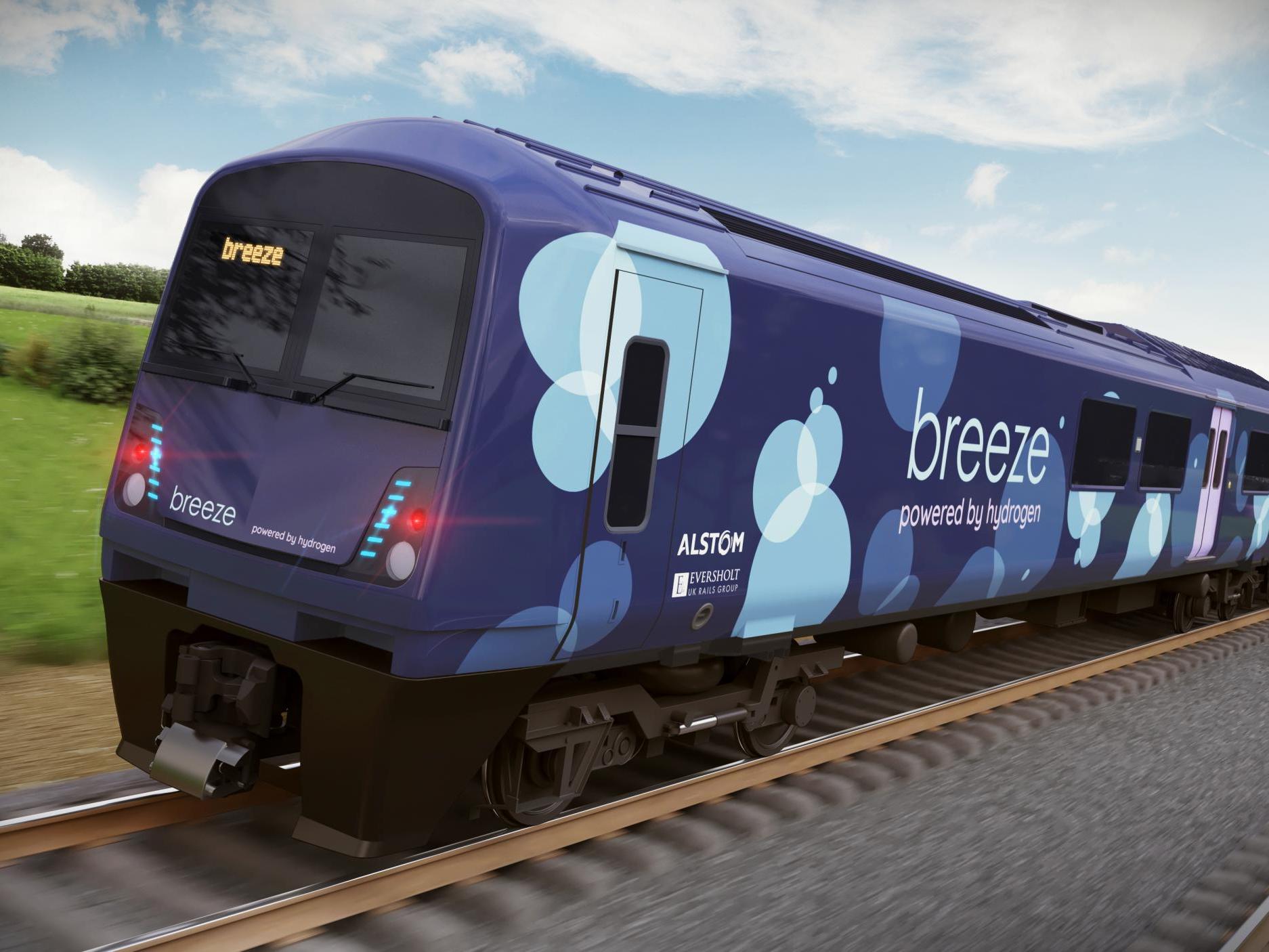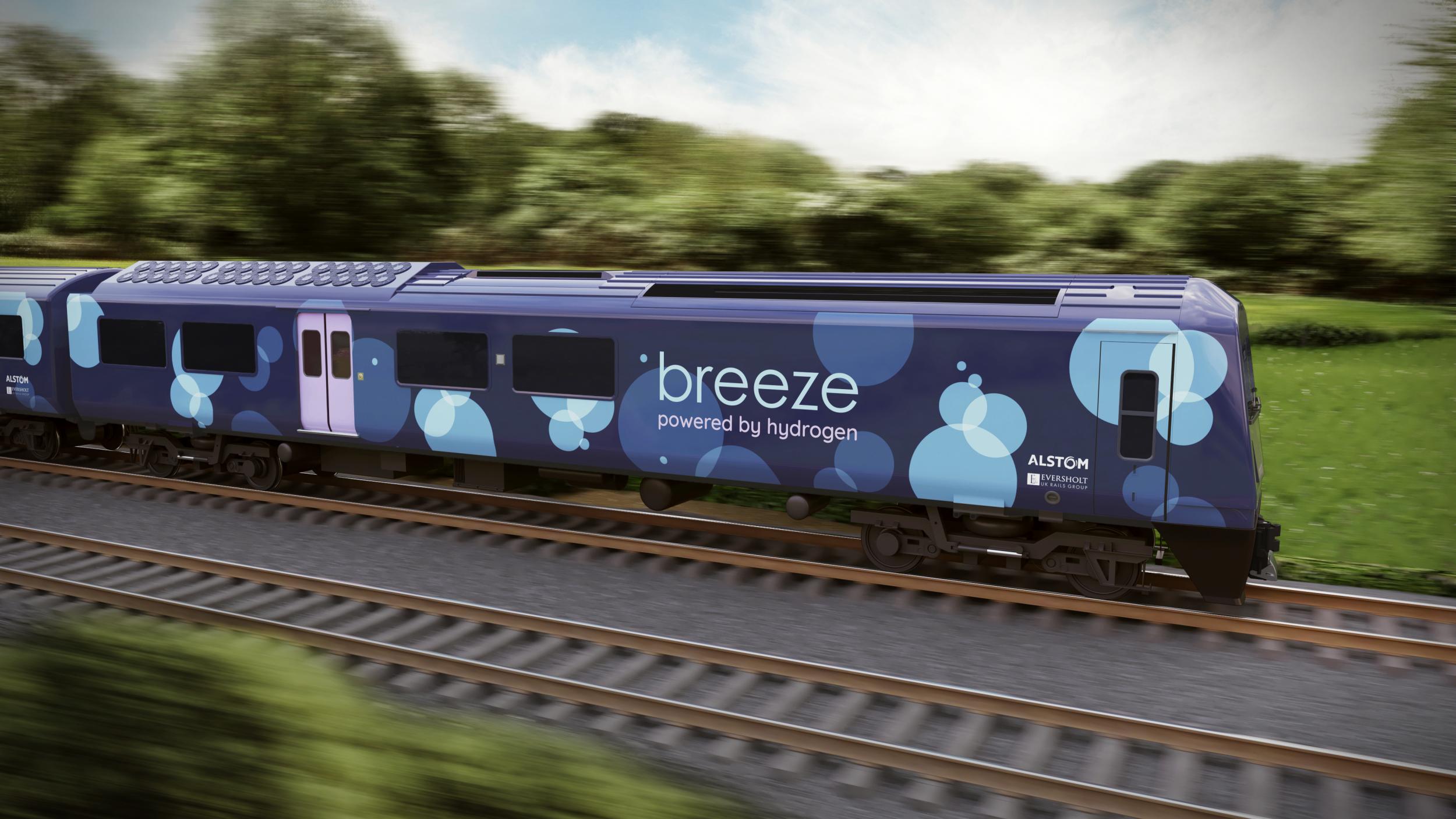Silent, water-emitting trains fuelled by hydrogen ‘to be introduced to UK railways in two years’
Upgrading existing rolling stock means diesel can be phased out without costly electrification of railways

Your support helps us to tell the story
From reproductive rights to climate change to Big Tech, The Independent is on the ground when the story is developing. Whether it's investigating the financials of Elon Musk's pro-Trump PAC or producing our latest documentary, 'The A Word', which shines a light on the American women fighting for reproductive rights, we know how important it is to parse out the facts from the messaging.
At such a critical moment in US history, we need reporters on the ground. Your donation allows us to keep sending journalists to speak to both sides of the story.
The Independent is trusted by Americans across the entire political spectrum. And unlike many other quality news outlets, we choose not to lock Americans out of our reporting and analysis with paywalls. We believe quality journalism should be available to everyone, paid for by those who can afford it.
Your support makes all the difference.Silent, water-emitting hydrogen-fuelled trains are to become reality in less than three years on some main lines across the UK, under ambitious plans to convert existing diesel rolling stock.
Polluting diesel engines are to be stripped out and replaced with hydrogen tanks on as many as 100 trains, under the preliminary terms of the deal.
The arrangement between UK rolling stock owner Eversholt and French firm Alstom will convert existing Class 321 trains, which were built in 1988 and are used on the Greater Anglican network.
The new trains will have a top speed of 90mph and the project has been named “Breeze”.
The technology could be in use on commuter lines across the country by 2022.
The Department for Transport is understood to be supportive of the programme, as the upgrades move it closer to its 2040 goal of stripping diesel engines from the rail network altogether.
In addition to using clean energy, the hydrogen-fuelled trains can run on existing track without the need for expensive overhead power cables required for electric operation.
Just over 40 per cent of the UK’s rail network is currently electrified, with the vast majority of trains running on diesel.
The dependence on diesel means some parts of the UK’s rail network are far over legal air quality thresholds.
Alstom said the deal will create new engineering jobs at their facility in Widnes, Cheshire.
The company has already built an entirely new hydrogen powered train due to begin public service in Germany in September this year.
Nick Crossfield, Alstom’s UK managing director, said: “The Breeze will be a clean new train for the UK with a stylish, modern look. The railways need to decarbonise and the government has rightly set out a goal to eliminate diesel rolling stock by 2040.
“Hydrogen trains offer an ideal solution for routes which are unlikely to benefit from electrification, and our innovative engineering solution means they can now fit within the UK loading gauge and can quickly be ready to roll on Britain’s railways.”
UK rail minister Andrew Jones said: “Hydrogen train technology is an exciting innovation which has the potential to transform our railway, making journeys cleaner and greener by cutting CO2 emissions even further. We are working with industry to establish how hydrogen trains can play an important part in the future, delivering better services on rural and inter-urban routes.”
Claire Perry, the minister for energy and clean growth also welcomed the deal between the two companies.

She said: “Transport in the UK has evolved over centuries from the world’s first steam train to the tens of thousands of electric vehicles on our roads today thanks to our nation of innovators. This new hydrogen powered train, which will only emit water, is further proof of the UK’s continued creativity to transform the way we travel as we continue to move to a greener, cleaner economy.
“The UK is on track when it comes to growing a world-leading hydrogen economy, and through our modern industrial strategy we are providing £23m to power our ambition to be the ‘go-to’ place for first-class hydrogen transport.”
The Independent understands the government is not funding the Breeze project.
Join our commenting forum
Join thought-provoking conversations, follow other Independent readers and see their replies
Comments